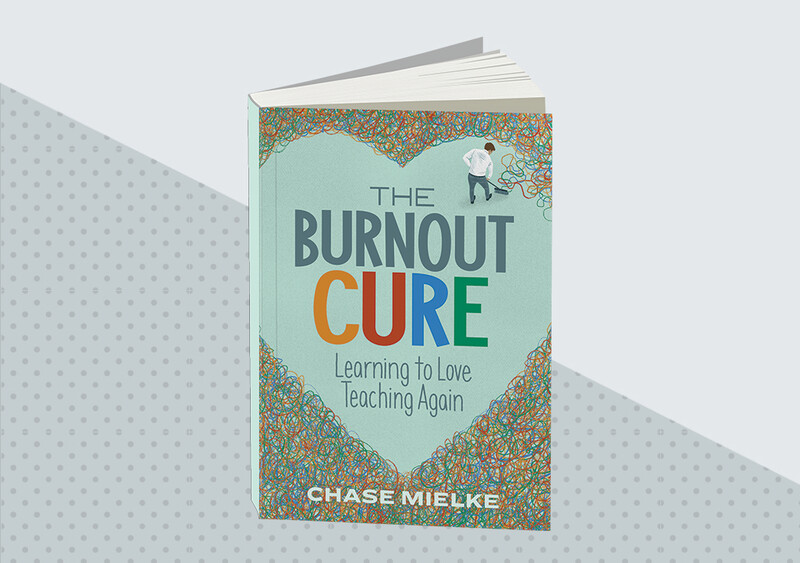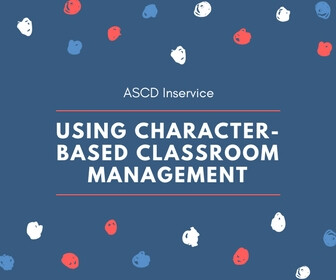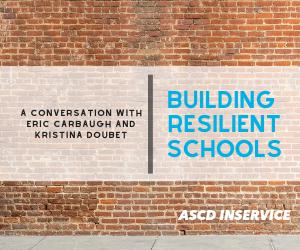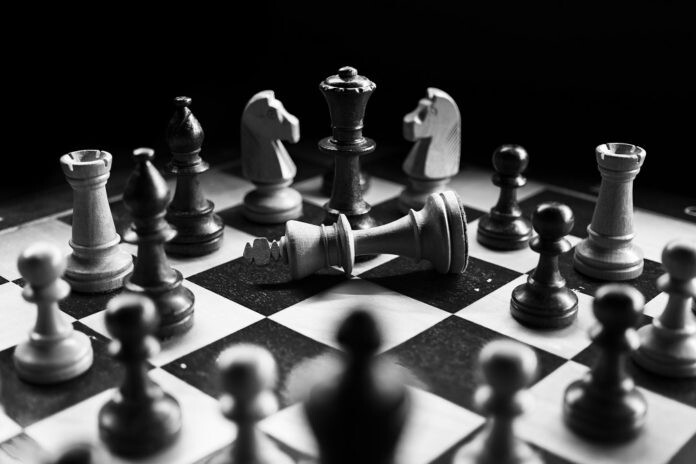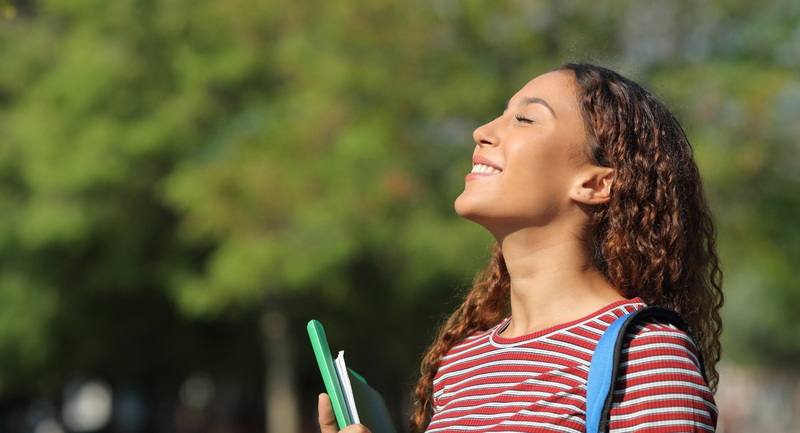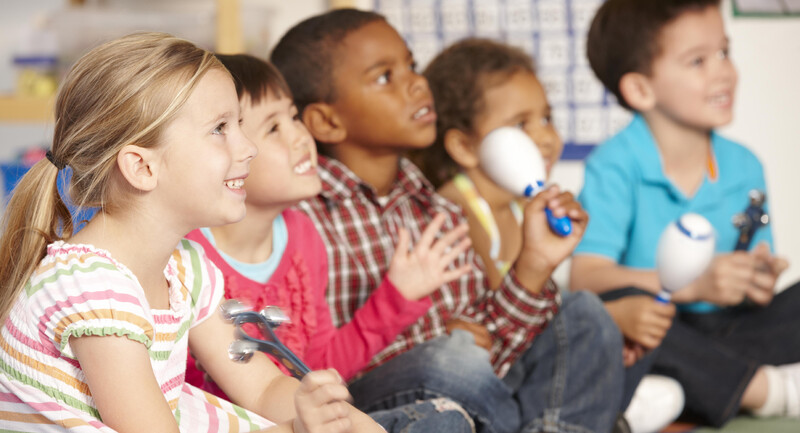“I feel like I just lost my brother,” I said to my wife one night. She and I shared a long, painful silence.
The brother I thought I knew evaporated with one text message: A message about presidential overthrows. About government conspiracies. About how this world I was living as an educator—with COVID-19 cases and protecting against illness and school mask mandates—was a lie. He believed I was a sheep, indoctrinated by fake science and fake news.
I’ll spare you the finer details of the text (though you probably could guess the gist of it), but what shattered in me that night was the feeling that my own brother and I shared the same reality.
It’s a feeling so many of us educators have experienced over the last two years: A feeling that common ground has severed into opposing cliffs. Harsh double bell curves careening off the scale. It’s as though we live in the same world but see different realities.
At times this year, I’ve felt like the overlap between my reality and the rest of the world has looked like this:
But I know too much about false dichotomies to put much stock in them. Good vs. bad. Us vs. them. Right vs. wrong. I know that we all employ countless cognitive distortions and biases that don’t serve us well. I even know that, in thinking I am less biased than others—than my brother—I have a bias blind spot.
What if the feeling that my brother and I don’t share a common reality is, in itself, a cognitive distortion?
I can’t downplay that this year has created real changes and challenges to life in and beyond the classroom. I’ve lived them as part of a two-teacher household navigating COVID-19 closures with two kids. I’ve felt it in the halls and walls of my school as students, teachers, and leaders describe the “new normal” and the burnout they’re navigating. And I’ve felt it in my gut — in the silence my wife and I shared — as I mourned the loss of my brother.
But he wasn’t actually dead, and he was still my brother.
Embracing Our Common Humanity
My brother is, at his core, the same brother I have loved for 36 years. We hold the same memories of skinned knees and midnight bike rides on our country roads. The same sarcastic humor honed by years of Simpsons episodes and playfully teasing Dad. He has the same love and loyalty to his kids and our family as I do. We breathe the same air and share the same DNA.
When we really stop to look at the ground between us and our neighbors, our students, and our colleagues, it looks like this:
The emotions we feel—fear, anger, joy, sadness—are universal, and wired into us at birth. We all use these common emotions to motivate our actions to overcome challenges and survive. We all eat, we all sleep, we all want love, we all mourn loss, and we all look to belong to a group and a cause. And we all think everyone else drives worse than we do. We are more the same than we are different.
The Empathy Gap
Teachers are bridge builders. We build connection between our classroom content and our kids’ cognition. We identify gaps in academics and work to reduce them.
But the most critical gap we will need to bridge this year is the empathy gap—in ourselves, in our students, and in our communities. We must start by realizing that what we share is more common, more powerful, and more critical to growth than how we differ.
In finding common ground, we can increase student achievement. In actively seeking connection, we reduce depersonalization, which is one of the three major components of burnout. And, in looking for relatability, we open the door for meaningful dialogue—the type that will be necessary to overcome the many challenges we face in schools.
To bridge empathy gaps, we don’t need new curriculum. We don’t need to invest in technology or fund new roles. We don’t need to stop teaching with rigor or relevance. Instead, we need to prompt ourselves to open doors of connection rather than duck behind walls of division. It starts with the most important resolution we may make this year.
A Critical Resolution
Just as we build literacy skills in our students and leadership skills in ourselves, we have to view empathy as not just a trait but a state that we can cue up and cultivate. My focus for 2022 is to strengthen the 4 L’s of Empathy—to build stronger connections, to de-escalate my emotions when I'm frustrated with someone, and to reduce my rumination about a conflict.
1. Listen nonjudgmentally: Ask or consider more about what the person is experiencing. Like an iceberg, outward behaviors are what we see above the surface—but there are many underlying causes to those behaviors like a person’s mood, emotions, past experiences, and beliefs. Seek to understand what's below the water line to better address the behaviors you see in plain sight.
Source: Mielke, C. (2019). The Burnout Cure: Learning to Love Teaching Again. Alexandria, VA: ASCD.
2. Label the emotion you think the person is feeling: Consider universal emotions like anger, fear, sadness, or surprise. Feelings are clues and curiosity is the key to resolving problems.
3. Link to a similar moment when you’ve felt this emotion or reaction: Even if you haven’t had the exact experience, you can relate to degrees of the same emotion.
4. Let go of any thoughts preventing you from finding common ground and productive dialogue: These include
- The need to be right: Human interaction isn’t a zero-sum game—both individuals are valid in their experiences.
- Resentment: I can’t change the past or other people’s choices—I shouldn’t let what I can’t change get in the way of what I can influence moving forward.
- Stereotyping: Treating people according to “types” is a dangerous bias that creates separation, not unity.
- Condescension: Feelings of being better or smarter than others devalues relationships and disrupt empathic responses.
At a time when our common ground appears to be widening, we have more opportunities than ever to strengthen our skill of empathy.
When a colleague is up-in-arms at a staff meeting, rather than brushing them off, try to consider what’s at the center of their discontent, looking for opportunities to help them through it.
When a student is defiant or angsty, think back to your own adolescent mischief and need for influence. Remember how important it was for you to be heard, affirmed, and supported when growing up and learning to become independent.
When a student’s parent speaks first from anger, practice being anti-defensive, listening and deescalating first before seeking paths to mutual resolution. Anger is often a response to fear or misunderstanding. To understand their iceberg—what’s below the surface of their behavior— take a deep breath and shift to curiosity. Use prompts like, "I want to understand better. Can you tell me more?" or "I want us to come up with solutions that work for all of us. Can we talk through some options?"
And most of all, when you find yourself feeling like the protagonist-against-the-world, remember that you’re one of 7 billion people trying to make sense of these last two years. Resist the urge to “win” at this thing called human interaction.
The Power of Human Connection
As I write this, I haven’t forgotten about the challenges and the traumas that educators have experienced in 2021. I’m not brushing aside how hard teaching these past couple of years has been. And I’m not ignoring the many differences of opinion across communities or schools or even our own families.
I’m instead realizing that entrenchment doesn’t bridge gaps. I’m giving myself permission to release my fists and relax my scowl in order to invite handshakes and conversation. I’m seeing our differences as two sides of the same coin called humanity. My brother’s opposing views on politics and life are not cemented walls—they are doorknobs. With empathy, I can see them as invitations to enter and understand his world, to look for unity, and to not give up on the decades and deep history that unite us.
We’ve lost a lot this last year. But let’s not let loss prevent us from seeing what’s left. Let’s look to find common ground and to remember that human connection—human empathy—is the most powerful tool we have. And we need it now more than ever.
The Burnout Cure
Award-winning teacher Chase Mielke draws from his own research, lesson plans, and experiences with burnout to help educators reignite their core passion for teaching.
